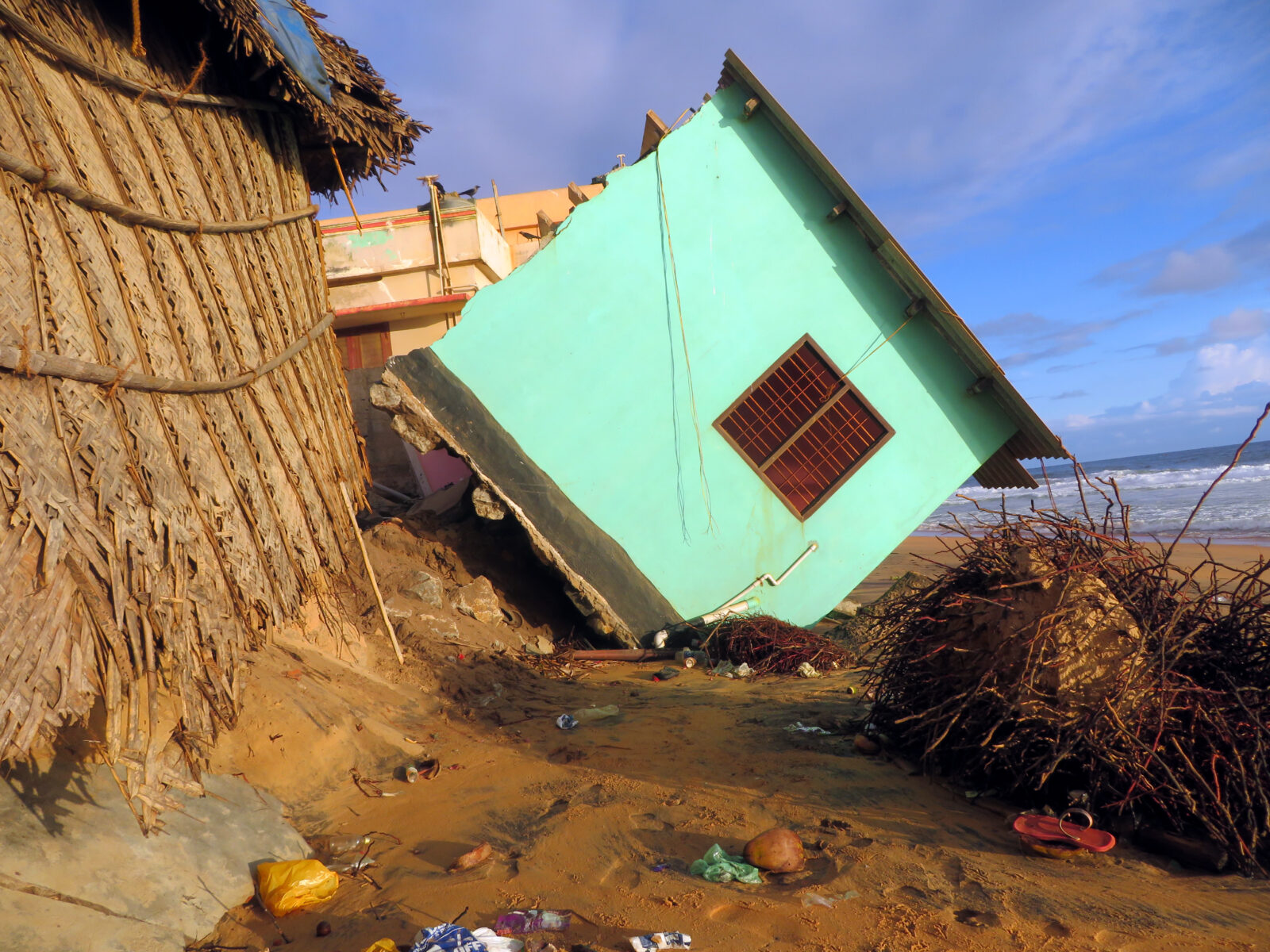
By Jisha Elizabeth
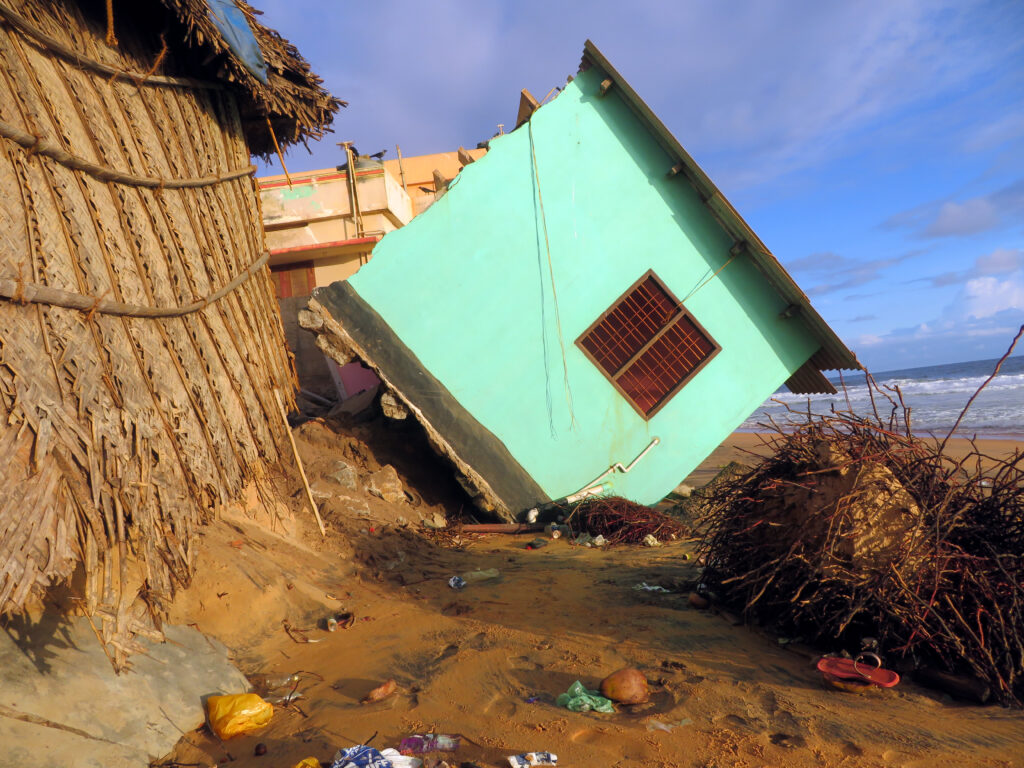
Who will rule Kerala? The coastal voters have a decisive role in answering this question. And among these voters, there are more women than men. During election campaigns, the most roadshows, rallies and so on are organised in the coastal areas. Every time without fail the political parties arrive with grand promises. But once the elections are over, they disappear into thin air, say the Fishers.
“Aren’t we humans too? Shouldn’t our children have secure lives? The government must help us. This — this living inside a school isn’t sustainable. The government must give us at least two cents (less than 900 square feet),” Benedict Mary said, weeping. She has been living for the last seven months in the relief camp in St Roch’s Convent school in Valliathoppu, Thiruvananthapuram.
Kochuthoppu is one of the Fishers’ villages that lie between the celebrated beaches of Shankumugham and Kovalam. That was the location of Mary’s home, a house called Karunai Illam. In the last week of August 2020, Karunai Illam’s foundation collapsed into the sea. Around 15 houses were destroyed that week.
At the same time, Covid was spreading like wildfire along Thiruvananthapuram’s coastal regions. In the middle of the pandemic, Mary and nearly a hundred others became refugees in the school in Valliathoppu. Among them were elderly people, and children. There were people who should have been resting and recovering after medical treatment, and an autistic teenager. Even as the Kerala government was demanding physical distancing, these families had to live in close proximity.
In Thiruvananthapuram at the western end of Kerala, ever since work began on Vizhinjam international port, the Fishers’ villages north of the project have suffered heavy flooding from the sea. In Valiathura where there is a dense population of Fishers, four rows of homes – hundreds of houses – have been wiped out, rendering many families homeless, and destroying their businesses. Many people owe lakhs in bank loans. They are preparing to protest in front of the secretariat in Thiruvananthapuram.
The situation is the same in Poonthura, Panathura, Kannathura, Vettukad, Veli, Thumba, St. Andrews and other Fishers’ villages in the north of Kerala. Since 2017, over 800 homes have been destroyed.
There are other relief camps as well. Some families are living in another school, and others in a godown in Valiathura. The thought that they would have to continue to live in a godown terrified some mothers so much that in February they decided to jump to their deaths from the Valiathura bridge. It took the combined efforts of the village and the police to dissuade them.
“It doesn’t matter who forms the government. The next government must rehabilitate everyone,” said Mary.
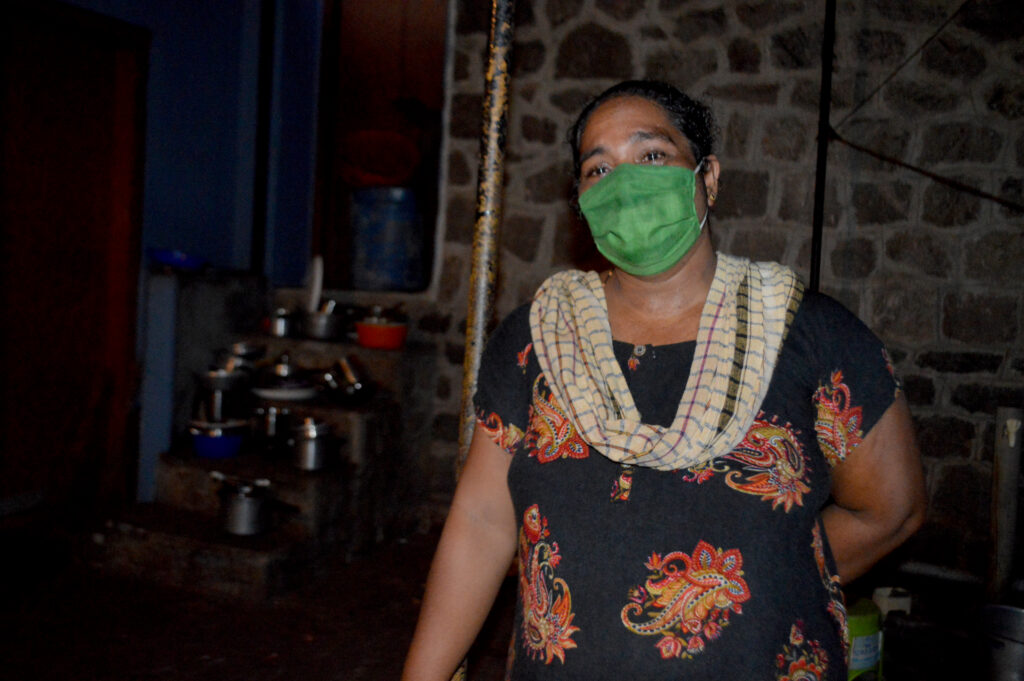
Wait for May 2
The elections are over and the results will be out on May 2. But by the middle of May, the sea will begin a display of its rage. The community fears that more homes will collapse in June when the monsoons begin. That’s why they are demanding that the next government immediately cancel the Vizhinjam port scheme, organise safety measures for the homes on the coast, and provide homes for those living in relief camps.
Both an anti-Adani sentiment and a resentment of the ruling LDF government are strong in Thiruvananthapuram district’s coastal region. Apart from this, a characterisation of Fishers as carriers of the Covid-19 virus has caused widespread unhappiness.
The fishing sector is run along traditional lines in Thiruvananthapuram district, which is also the district with Kerala’s largest number of Fishers. So the number of women in the fishing sector is much higher than in other districts. Both the man and the woman of the household are active in fishing and in the sale of fish. They sell on the streets and also by carrying baskets of fish to the doorsteps of customers.
Because of the door-to-door sale, in Thiruvananthapuram, where the first Covid cluster was identified, rumours began circulating that the disease was spread by the women in this business. This belief was not corrected by the government and bureaucrats. As a result, all over Kerala, fisherwomen and their community have been at the receiving end of slurs.
For example, in July 2020, when army commandos did a route march in the Fishers’ village of Poonthura in Thiruvananthapuram, Dr Mohammed Asheel, Executive Director of Kerala’s Social Security Mission, said: “The guns will be a message to Poonthura.” Asheel’s comments were roundly condemned, and he was also accused on social media of making communal remarks, but he did not apologise.
It was also around this time that rumours were circulated that Fishers spat inside the car of health workers who had come to Poonthura. When Fishers spoke out to make it clear that the rumour was false, the conflict actually heated up.
Fishers who complained about the living conditions of refugees from the coastal community – they were being forced to stay in cramped and dirty healthcentres, and were not being given meals on time – were criticised. Rumours spread all over Kerala that Fishers were throwing tantrums, that they would not eat a meal without fish curry on the side.
To all this calumny, the residents of Poonthura gave their rejoinder in the local government elections in December 2020. One of the winners was Mary Gypsy – a Poonthura resident, an independent candidate, a woman, a pre-primary school teacher, and a member of a Fisher household. The UDF coalition led by the Congress, the LDF coalition led by the Communist Party and the NDA led by the BJP – the three main political formations – and their candidates didn’t find a foothold.
The Present Situation
When assembly elections rolled around three months after local government elections, a massive controversy arose around the news that the government had signed a memorandum with a private company to build boats and shops for deep sea trawling. The government faced accusations of threatening both the marine ecosystem and the livelihood of traditional Fishers. This became an explosive issue during the campaigning for assembly elections. The results of all this will be apparent as soon as ballot boxes are opened on May 2.
Empty Promises
Both state and local governments have promised at various times that Fishers would get improved working conditions. All these promises have gone unfulfilled.
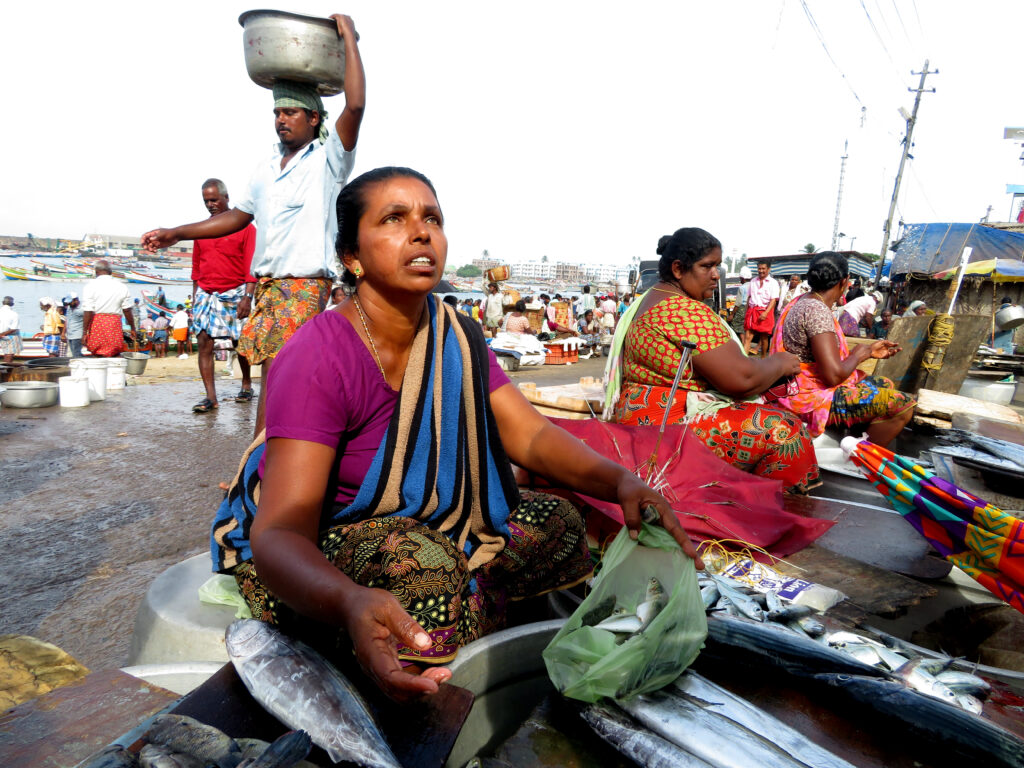
One of the demands of women in fisheries is for some shelter from the sun. Selling their wares under the blazing sun is affecting their health. If they are not allotted shops, as they had once been promised, at least a big umbrella would help. Another promise made to the community is that the drains in the markets would be cleaned. These drains have such a powerful bad odour that headaches are a common malady here. Then, even though sales continue at night, the government has not followed through on its promise to install lights. Nor are there any toilets, even though there are so many women in the business. And as there is no safe place to stay, women who come to buy fish from other districts and other states are forced to sleep in lorries or at the harbour.
Fundamentally, the government only considers the men in the business to be Fishers, and only those who are considered to be Fishers get any benefits.
This is quite apart from the community’s own taboos against women in the business. Once they reach puberty, women are banned from the sea and boats, and social conditions make it hard for women to break these ‘rules’.
Women therefore get opportunities only in the processing and sale of fish. With the arrival of workers from other states, those opportunities too are dwindling.
As women are not recognised as Fishers, they are unable to even benefit from social welfare pension schemes. Since a sizeable number of them are small businesswomen and sole proprietors, they would like schemes for loans or financial assistance through the fisheries department. Maglin Philomena is a Fisher leader who has relentlessly lobbied governments with this demand.
Education
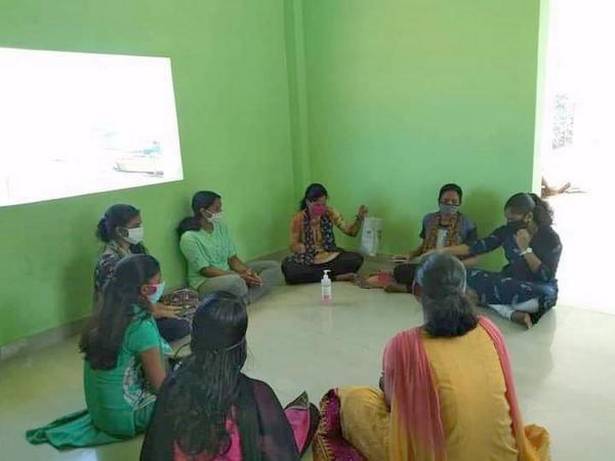
It used to be that women from the community were married off after a basic education. Though there has been a small shift from that social restriction, women are not getting any other skill training. A handful of women in recent times have been able to catch fish in the sea, to scuba dive, and to learn marine sciences. But Kerala’s fisheries schools have not been geared to give that kind of education (in marine sciences and scuba diving) to anyone.
In Thiruvananthapuram there are students’ and teachers’ movements working with determination to rip up the existing syllabus in fisheries schools and remake it with the understanding of the Fishers’ communities, and in the language of the community. One of these organisations is the Coastal Students Cultural Forum, which has a majority of girls in its membership, and many women in its leadership.
In anticipation of the election, the group organised programmes on its platform, Radio Kadal. It created a space for students, housewives and small businesswomen among the Fishers’ community. The forum’s office-bearers have asserted that the coast must be a major force in deciding who forms the next government.
Not A Drop
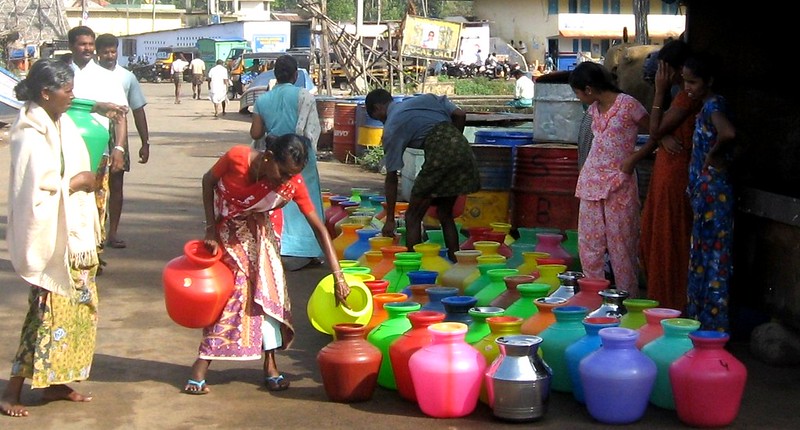
A sea, a literal sea, of water lies before them. But it’s still difficult for them to get potable water. These folks who work hard to put food on the table have to spend Rs 80-100 every day for drinking water. Drinking water arrives through the public taps all over Kerala, but not in this region, due to an assortment of alleged technical difficulties. When a family living in town spends just Rs 300 to Rs 400 a month on water, a family on the coast spends as much as Rs 3,000 for a month’s worth of water via tankers. Women often have to abandon work and the day’s income while waiting for the tanker to arrive. Though there are many drinking water schemes in places, the beneficiaries are bigwigs like Adani, say the residents of Fisher villages near the Vizhinjam port. These residents have organised numerous protests for drinking water. The government sends its representatives to work out an agreement. Then things go back to how they always were.
Now, however, a vigilant group is working under the leadership of the Our Lady of Good Voyage church near Vizhinjam. Last October, the protests were strong enough to halt work at the Adani port for a whole month. The protesters blocked roads with their boats. One of their 18 demands at the time was a distribution system for potable water. Rs 7.3 crore was set aside for a drinking water scheme in the coast, but the group says that this money is being used to supply water for port construction activities. Sothis time, too, they have voted for drinking water.
Casteism
For years the community has demanded buses exclusively for women going into town to sell fish. In regular buses, these women face strong discrimination, and frequently they are beaten and their baskets are thrown out. Since the smell of the fish annoys some people, that brings its share of insults. In Kollam and Thiruvanathapuram, the ward sabhas takes decisions but usually these women are unable to participate in ward sabhas. When the prevailing ethos is to be self-reliant and work to support your family, not even a day’s wages can be set aside.
The food kits delivered by the government all over Kerala during the pandemic and the regular disbursal of community pensions had created a positive image for the LDF government’s campaigns in these elections. But Fishers do not get community pensions, the women say.
Women’s Representation
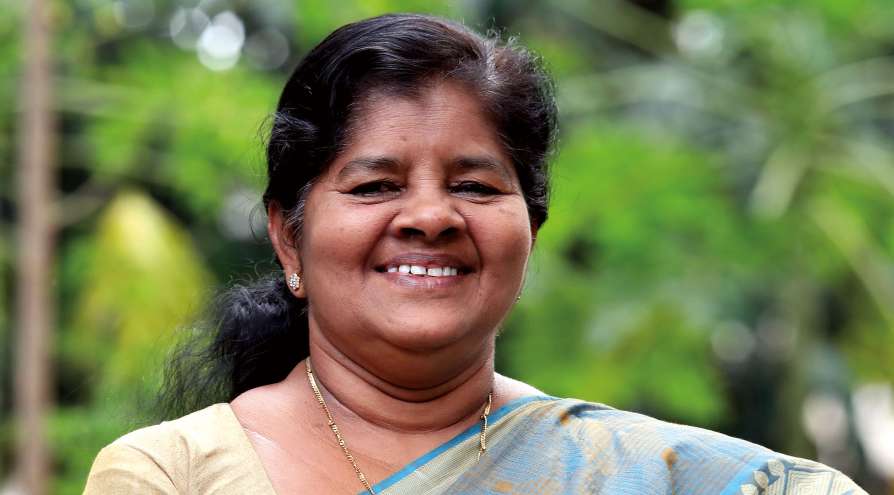
Since 2010, 50 percent of seats have been reserved for women in local government. However, women’s representation is poor in assembly elections, and the representation of the Fisher community is even more so. In the current government, the fisheries minister is a woman, J. Mercy Kuttyamma. In this election, she has run for elections again in Kundra constituency in Kollam district. She is a strong and effective minister, but the deep sea trawler controversy has reduced her chances of victory.
In Kollam district’s Kollam constituency, the main candidate was Bindu Krishna from the Congress. She ran with the support of Fishers, who put down the security deposit when her nomination papers were filed.
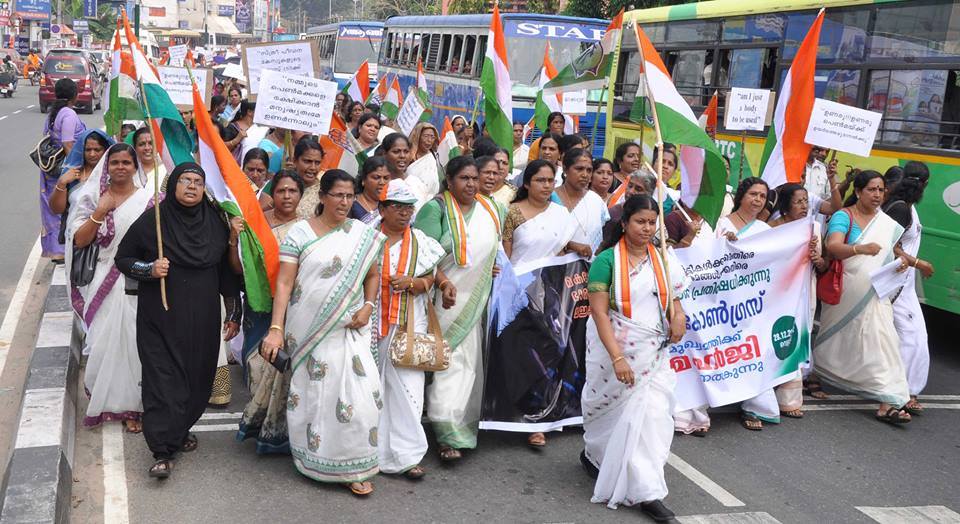
The LDF has long had a monopoly on this constituency but its hold was loosened after what was seen as arrogance on the part of the current MLA and prominent movie star, Mukesh. On 29 November 2017, during the time of Cyclone Okhi, several Fishers were missing in the seas. Workers from LDF and other parties arrived swiftly to offer help, but Mukesh arrived only the next day. When women from the Fishers’ community asked where he had been, Mukesh, a gifted comedian in the movies, replied, “Not abroad.” The angry, grieving women gherao-ed him, and party workers had a tough time getting him out of there. Since then, Mukesh has been labelled both an absentee MLA and, when he is present, disrespectful to Fishers.
Okhi Cyclone and LivelihoodsFishers have complained that the government did not provide adequate warning about Cyclone Okhi. Moreover, the death toll was high because in the beginning the relief work was uncoordinated. The greatest number of deaths were from Thiruvananthapuram district where the government says that 52 people died and 104 went missing. Those who looked death in the eye that day and barely managed to escape fear going back to sea even today. In Poonthura there are 78 people who managed to escape. Many of them still suffer from mental trauma and are unable to work. This affects their families and their livelihoods. The government had announced financial assistance to the families of those who had died but media reports say that several families still haven’t received this compensation. Stories abound of women who were widowed after Cyclone Okhi struggling to raise their children alone today.
Or take Chellanam panchayat which is in Ernakulam district. Houses in this panchayat are frequently underwater as the sea surges. For ages the community has been protesting this situation.
The community has created a new political party called Chellanam 20-20, spurning all the mainstream parties. Also in play is another party called 20-20 (under the leadership of the Kitex group) and a New Gen party called We For Kerala. These parties’ vote shares will determine who wins the assembly elections. So the constituency has become an unpredictable creature.
In 2018’s Great Flood in Kerala, Fishers were the state’s rescue force. The government called them Kerala’s army for their altruistic acts of bravery. But no one is here to protect the community from the loss of their jobs and homes, to rescue them from their lives as refugees.
All along the coast, the first victims of political neglect and economic downturn have been women and children. Every election brings its own promises but these remain hollow. Which is why in Chellanam, the Janakeeya Vedi, a group that has been protesting the lack of effective measures to protect the eroding coastline, said in late March they would boycott the elections altogether. And it’s not for nothing that this time around in Thiruvananthapuram and Kollam districts, the campaigning political candidates got their ears singed by complaints from women from the Fishers’ community.
When the ballot boxes are opened on May 2, we will know whether what lies inside is a strong rejoinder for all that they have faced.
Jisha Elizabeth is a multimedia journalist focussed on environmental themes. She is a senior sub-editor with Madhyamam, a Malayalam news daily. She tweets at @jishaeliza.



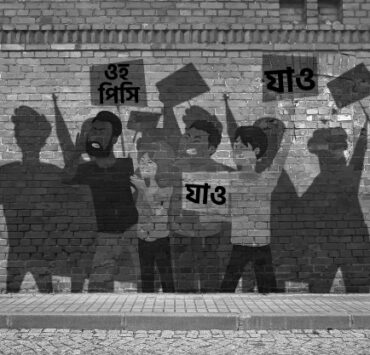
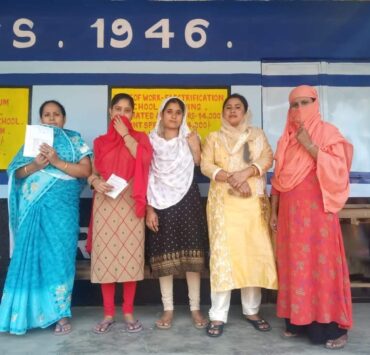
Most of the keralites have lost their political consciousness.